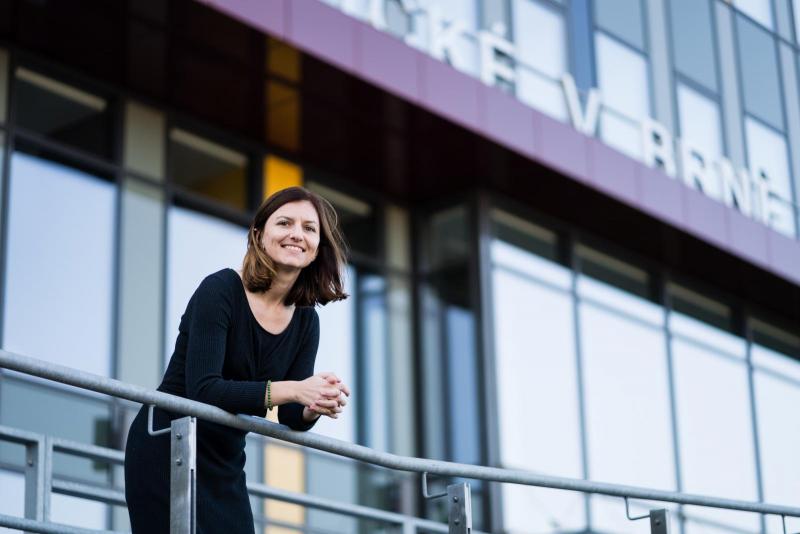People
BUT has its JUNIOR STAR. Young scientist begins to build her own team

JUNIOR STAR grants are intended for excellent beginning scientists within eight years of obtaining their Ph.D. degree. They also need to have a record of publishing in top international journals and a significant experience from abroad. Andrea Konečná from BUT meets all this. "I studied at the Faculty of Mechanical Engineering, specifically at the Institute of Physical Engineering, where it is required to go abroad for a study stay during the master's studies. That's how I first got to Spain for half a year," recalls Konečná, who eventually spent seven years in the country.
After completing her master's degree, she returned to the Materials Physics Center in San Sebastián, Spain, as a doctoral student. She focused on nanophotonics, a field that focuses on the study of light in nanostructures. "It is also a question of how to control and focus light at these extremely small dimensions, which can be interesting for various modern applications: for example, computers that would be working on the basis of light much faster, or sensors based on nanostructures," explains Konečná.
In addition to nanophotonics, she also dealt with the question of how to examine light at the nanoscale, using electron beams. "This connected the whole topic with another great interest I brought from Brno, which is electron microscopy. Its connection with nanophotonics has become the main topic of my doctoral studies. The postdoctoral position in Barcelona was also crucial, where I further developed the topic under the guidance of one of the best theoreticians in the field," recalls Konečná.
Although electron microscopes are extremely powerful, there are many ways to improve the electron beam.
Although she praises her experience abroad – as part of her doctorate she "popped out" from Spain several times to the USA and gained a number of valuable contacts – she always wanted to return home. "Because of my family, friends, but also the institute where I studied. There are very capable colleagues and students and also a great atmosphere, which is not common abroad. I was lucky to work in the well-functioning research groups, but they functioned more professionally. The atmosphere here also suits me personally, I feel good here. That was one of the reasons why I wanted to come back," explains Konečná.
After returning to Brno, she did research at CEITEC BUT, and with a new JUNIOR STAR grant, she has been returning to her alma mater, the Institute of Physical Engineering, since January. Over the course of five years, with the support of CZK 22 million from the Grant Agency, it will try to build its own research group. "I am reversing my original focus a bit, this time we will focus on electron microscopes, which are extremely powerful, but there are a number of ways to improve the electron beam. One of the options is to shine a light on it and modify the electrons in the beam with light," says Konečná.
Her newly built group should include three doctoral students and one or two other colleagues. "First, we want to calculate our hypotheses thoroughly before investing in material, but in two to three years we could start experimenting. The ideal result would be the use of our results in practice, which Brno companies engaged in the production of electron microscopes could be interested in. But I also love working with people and watching their progress, so I am looking forward to it in any case," concludes the fresh JUNIOR STAR from BUT.
Women from BUT who move the world of science and technology
Petr Viewegh’s Microcosm and Macrocosm
Bismuth as a cheaper alternative to gold
The market was lack of clothing for tall people, so Radek Pilař started sewing his own
I enjoy applying mechanical engineering to the human body, says doctoral student